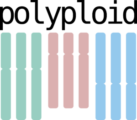Secondees
Secondment period means the period spent by the staff member in a host organisation for the purposes of the action. A secondee is a staff member hosted.
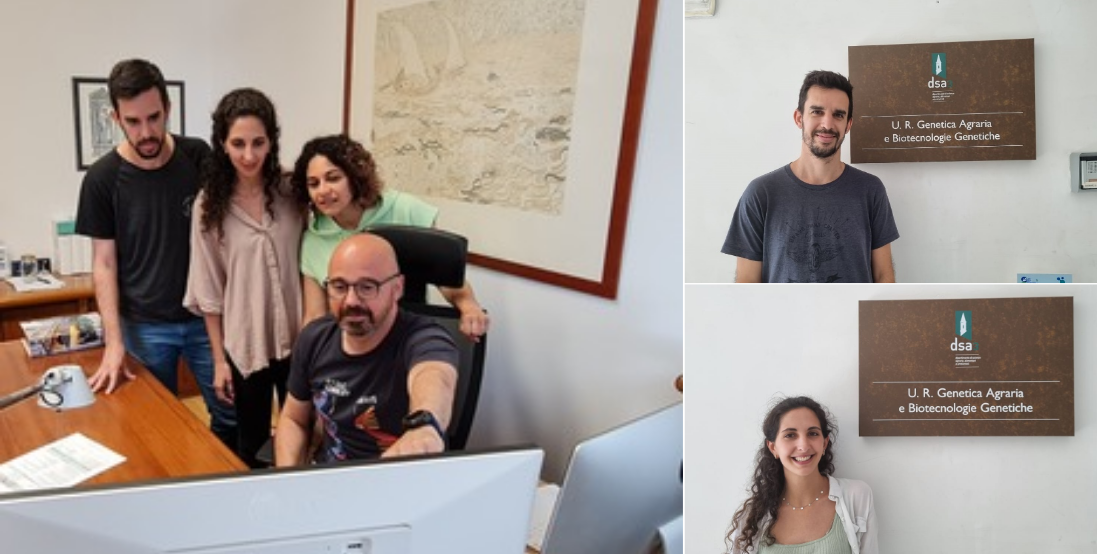
Fernando Hernández and
Ana Laura Achilli
Universidad Nacional del Sur (Argentina) to University of Perugia (Italy)
May 5th to July 6th 2022
Fernando and Ana Laura secondment focus on the study of methylation patterns in populations of Eragrostis curvula with distinct ploidy levels. This study aims to provide novel insigths on the role of methylation on the establishment and evolution of polyploid plants.

Marco Di Marsico
University of Perugia to Sequentia Biotech (Barcelona, Spain)
May 3rd 2021 to January 31st 2022
Marco secondment was focused on the analysis of the genome of polyploids. During his secondment Marco was also involved in upgrading the GreeNC (Green Non-Coding Database) a reference database for the study of plant long non-coding RNAs (lncRNAs).
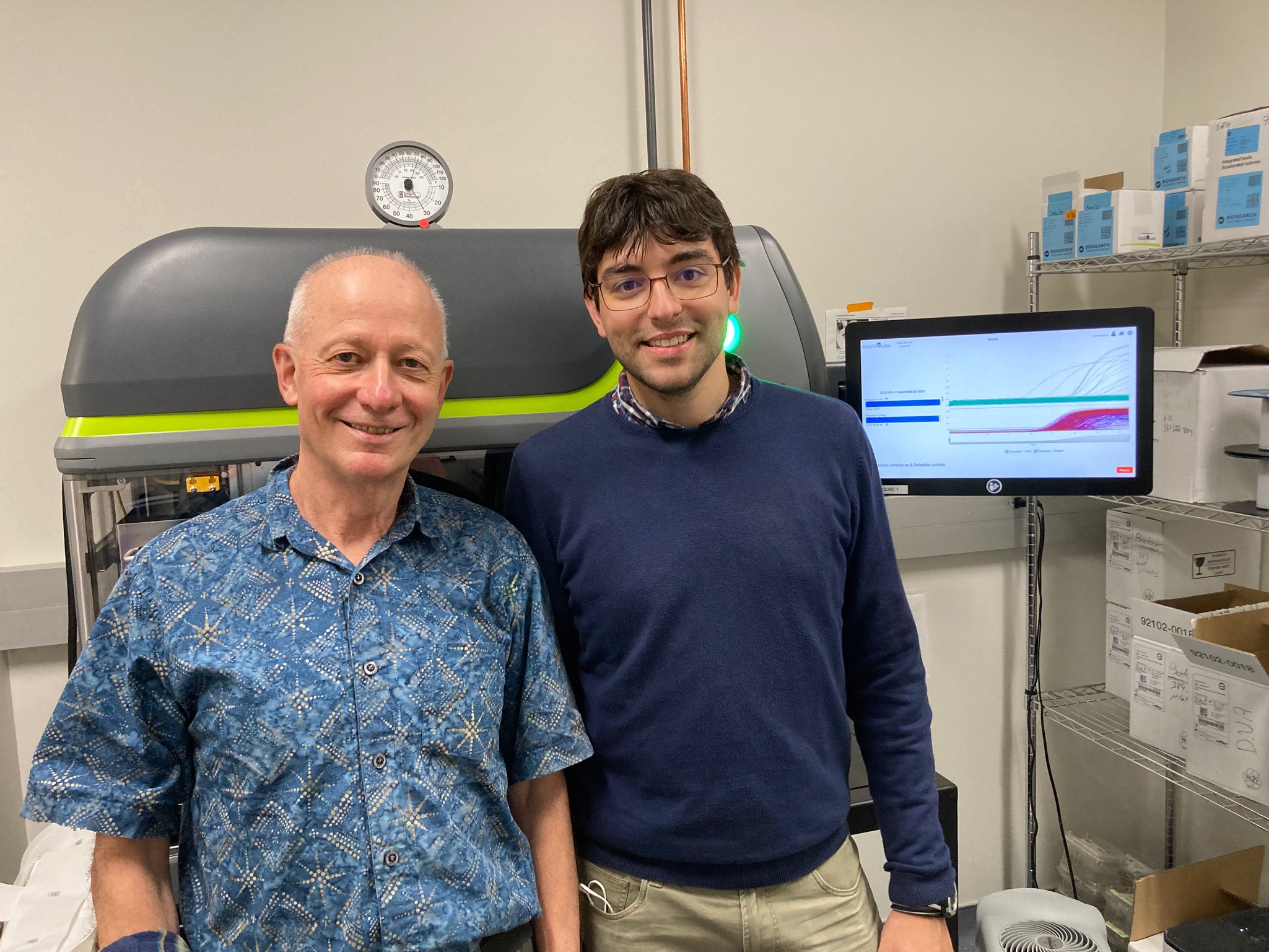
Niccolò Terzaroli
University of Perugia to Comai Lab (UC Davis, California, USA)
February 1st to October 31st 2022
Niccolò secondment is focused on Mentha piperita, a complex, sterile, allohexaploid species with a high economic value. In particular, he is trying to restore fertility and characterize the gene/s responsible for menthol production on two mutants of a gamma-irradiated population through RNA-seq.

Peter van Dijk
KeyGene to the Colombo Lab (University of Milan, Italy)
September 29th to October 30th 2022
Together with scientists from the Colombo group, Peter worked on optimizing confocal microscopy to study female (apo)meiosis in dandelions. Diplospory in apomictic triploid dandelions was compared with meiosis in diploid sexual dandelions using the Colombo lab’s confocal microscopy facility. A detailed description of the cytological mechanism and phenotype of diplospory is essential for identifying the gene that causes diplospory. Research stagnated in the late 1950s and is now brought to the next level by modern methods and equipment.
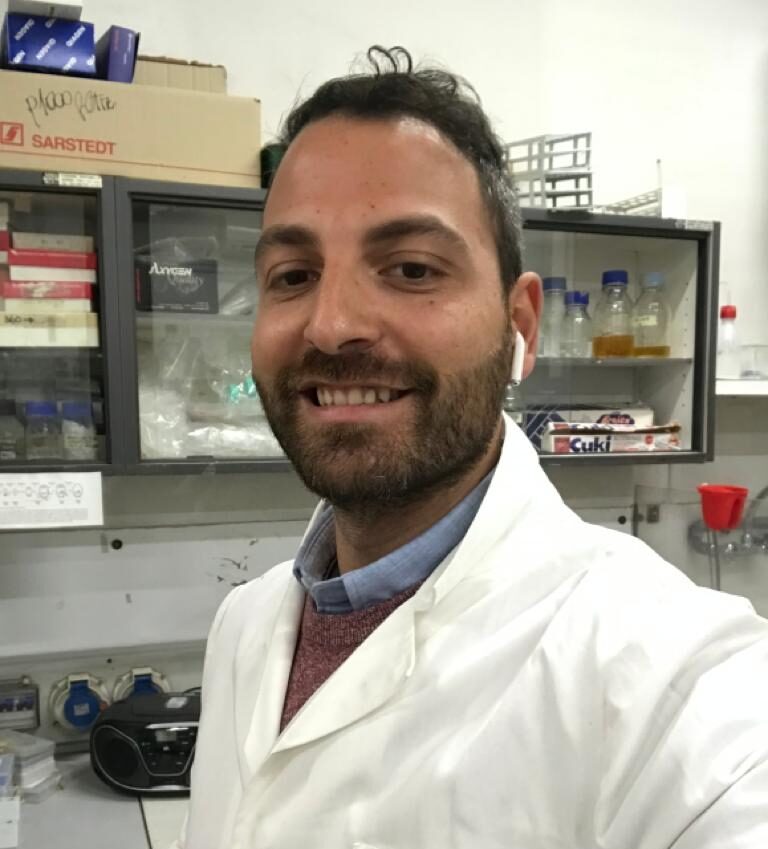
Maurizio Di Marzio, Dr.
To Sequentia Biotech (Barcelona, Spain)
September to November 2022
During his secondment, Maurizio Di Marzio performed bioinformatic analysis of two transriptomic experiment, an RNAseq and a ChIPseq of Arabidopsis thaliana. The two approach were used to focus on the importance of Epigentic factors during the fertilization process.
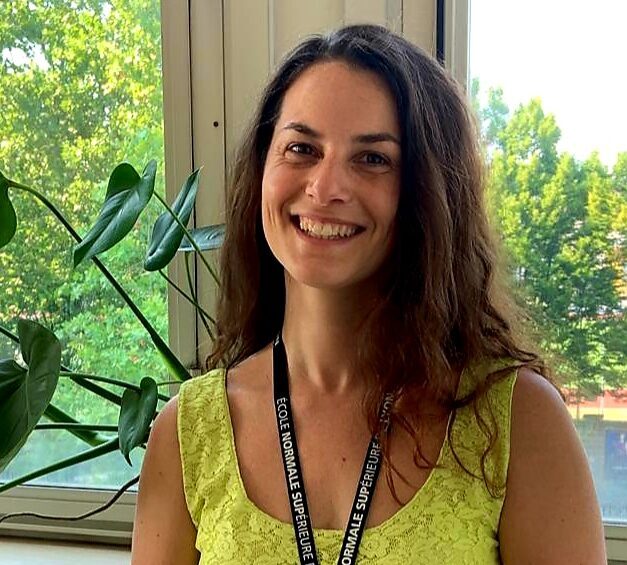
Letizia Cornaro, PhD student
To KeyGene company (Netherlands)
November to April 2022
Letizia Cornaro (PhD student) was seconded to KeyGene in the Netherlands. During hand was involved in the characterization of loss-of-diplospory mutants, together with the analysis of the DIPLOSPORY locus.

Ermanno di Serio
UNINA To Sequentia Biotech (Barcelona, Spain)
May 12th to August 12th 2022
Ermanno’s secondment focuses on bioinformatic pipeline training helpful in analyzing transcriptomic and epigenomic NGS data generated within the project. He wants to establish comparisons to identify the genomic regions undergoing alterations after genome-doubling in synthetic potato polyploids.
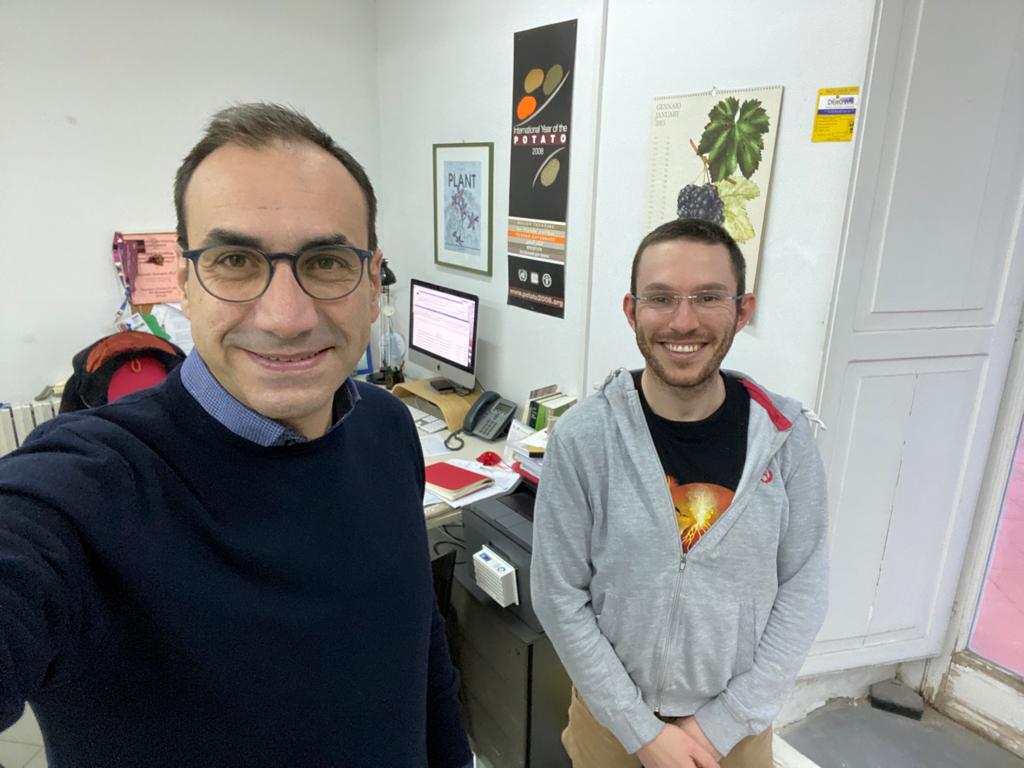
Riccardo Aiese Cigliano
Sequentia Biotech to Aversano/Carputo’s lab (University of Naples, Italy)
September 18th to October 1st 2021 and December 15th to December 30th 2021
Riccardo’s secondment aimed at the identification of candidate genes that may be associated with increased stress tolerance of polyploid potato plants using publicly available RNA-seq data from diploid and tetraploid samples.

Nicola Baldoni
Universitá di Perugia To Sequentia Biotech (Barcelona, Spain)
October 4th to December 21st 2022
Nicola Baldoni was seconded to Sequentia Biotech in Barcelona. The secondment was focused on bioinformatic training on metagenomic analysis and transcriptomic NGS, as RNA-seq. During his stay here in Sequentia Nicola, also worked on the bioinformatics analysis of some polyploid data.

Carolina Kozub and Victoria Bertoldi
University of Naples Federico II (Naples, Italy)
February 2nd to March 29st 2023
Carolina Kozub and Victoria Bertoldi (IBAM-CONICET-UNCU, Mendoza, Argentina) visited the Domenico Carputo and Riccardo Aversano labs (University of Naples Federico II, Italy) from February 2nd to March 29 th , 2023, to analyze the polyploidy effect on the transposon activity in diploid and tetraploid Solanum kurtzianum (wild potato).
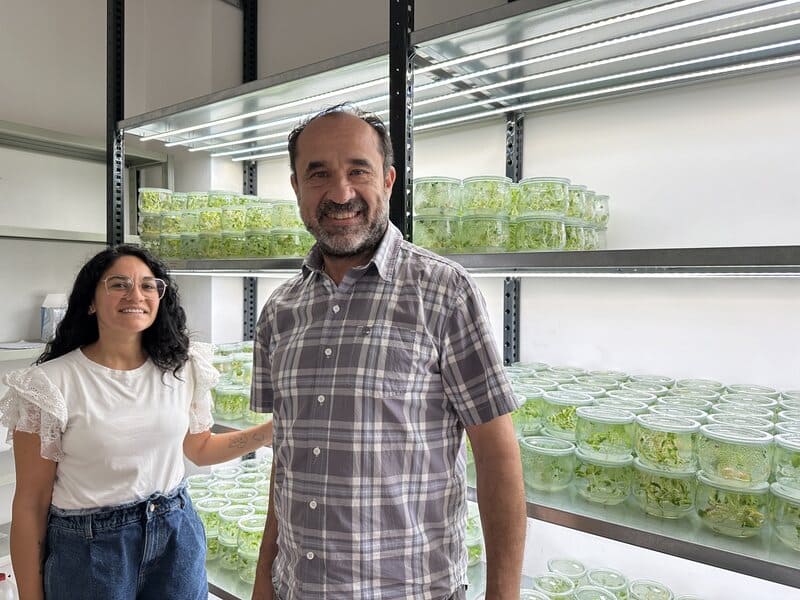
Ricardo
University of Perugia, (Italy)
Ricardo’s (IBAM-CONICET-UNCuyo, Mendoza, Argentina) secondment at the Emidio Albertini’s Group (University of Perugia, Italy) was focused on the analysis of methylation patterns in diploid and tetraploid potato samples. The study aims to determine the alteration of the epigenetics patterns after polyploidization and drought stress in polyploids of potato species.
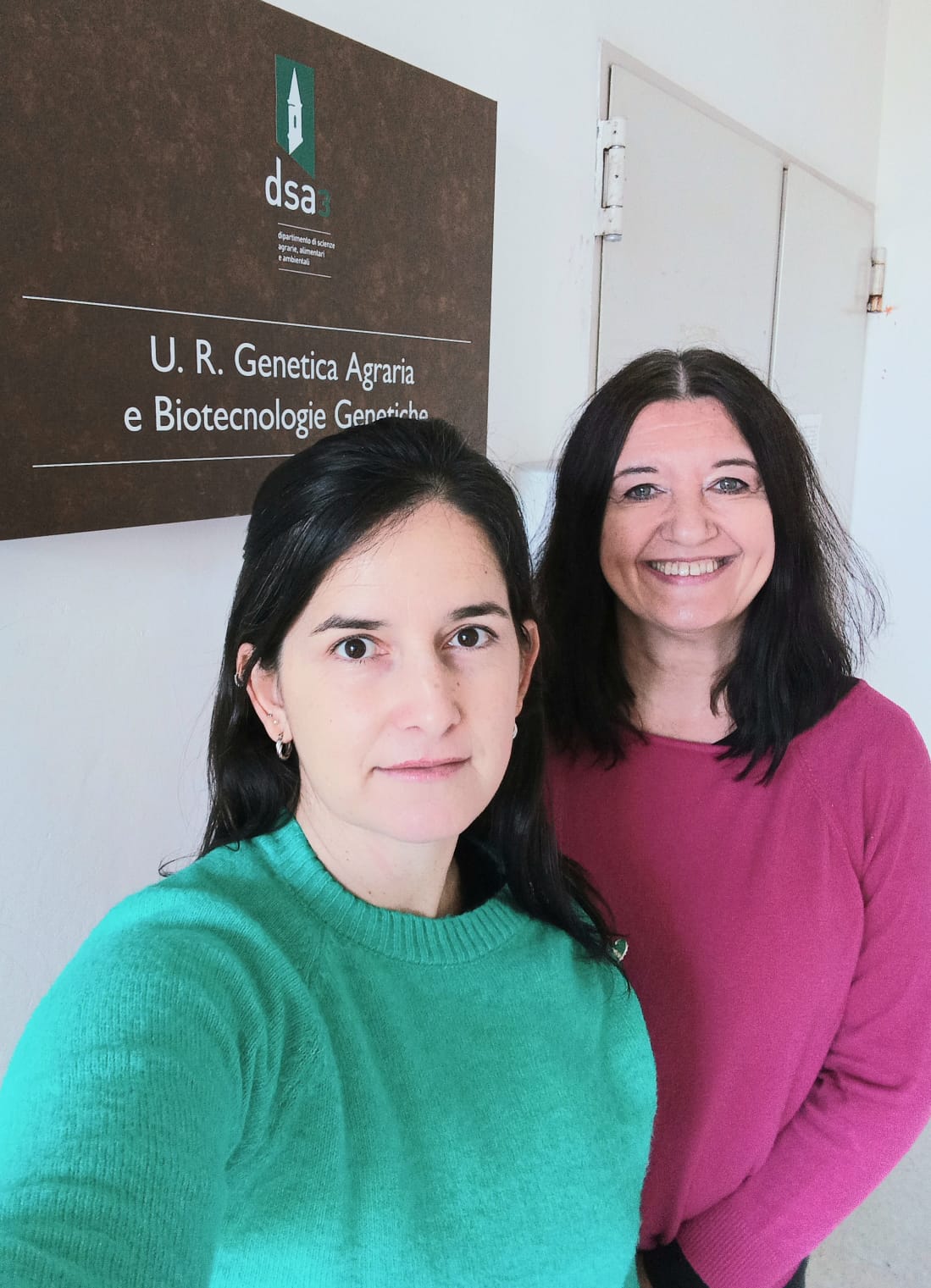
Dr. Patricia Novo and Dr. Silvina Pessino
Department of Agrarian Genetics – University of Perugia, (Italy)
February 3rd to March 4th 2024
Dr. Patricia Novo (IBONE-CONICET, Corrientes Argentina) and Dr. Silvina Pessino (IICAR-CONICET, Rosario, Argentina) studied the impact of differential epigenetic landscapes on the behaviour of Paspalum polyploids growing in cultivated fields, searching for correlations between the occurrence of particular epigenetic marks and phenotypic indexes obtained by remote sensing. Moreover, they used the Methylation Context Sensitive Enzyme ddRAD technique (MCSeEd) to characterize the genetic/epigenetic structure of Paspalum rufum, Paspalum indecorum and Paspalum plicatulum genotypes with different ploidies.
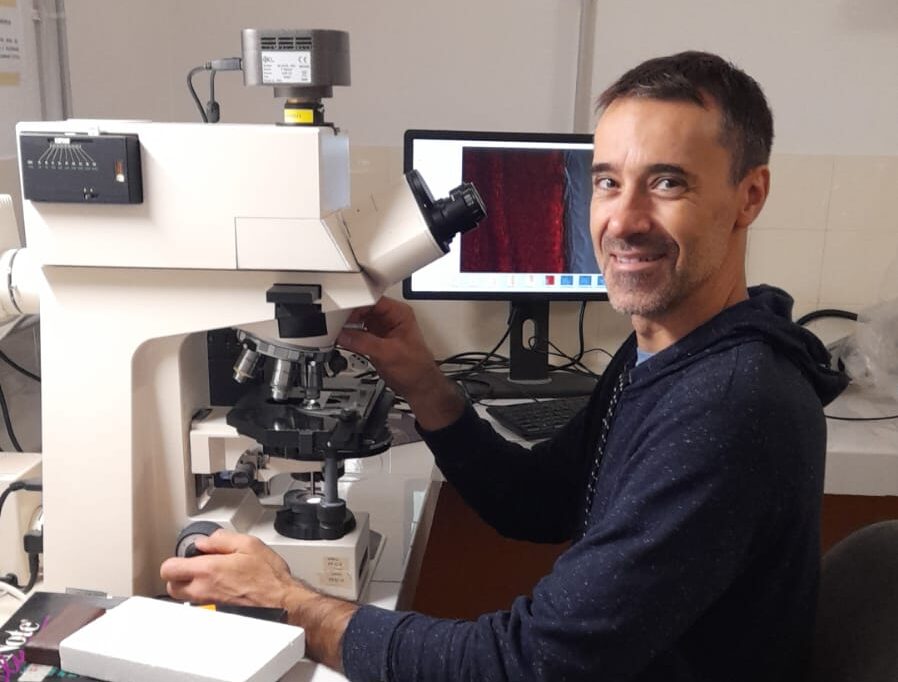
Juan Pablo Selva
CERZOS – UNIPG
March 5th to May 4th 2024 – Task 4.3
This research, conducted during a two-month secondment, aims to analyze Eragrostis curvula flowers from different genotypes with ploidy levels ranging from 2x to 8x. The primary objective is to establish a calendar correlating floral morphological parameters with stages of megasporogenesis and megagametogenesis. Establishing such a calendar is essential for future transcriptomic analyses at various developmental stages in different genotypes with diverse ploidy levels and reproductive modes. This initial characterization is crucial for subsequent functional characterization of transformed plants. Additionally, his works involved characterizing a tetraploid mapping population of E. curvula segregating for apomixis. This will be achieved through the creation of a linkage map and the selection of individuals with similar molecular markers but differing reproductive modes (apomictic and sexual). These selected individuals will be targeted for future analysis. This comprehensive approach promises insights into the genetic basis of apomixis and sexual reproduction in E. curvula, with potential implications for plant breeding and genetic improvement strategies.
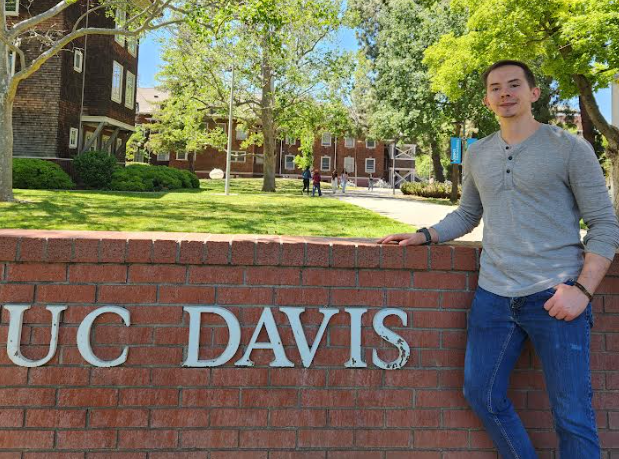
Aaron Anderson
UC Davis – UNIPG
October 13th 2023 to October 12th 2024
Research conducted during this twelve-month secondment aims to assemble and analyze genomes from 8 related Medicago sativa genotypes representing both 2x and 4x individuals. The primary objective is to use long-read sequencing technology to assemble high-quality telomere-telomere genomes for structural analysis to identify differences between 3 neopolyploids, 2 mitotic mutant parents, and 3 diploid full siblings. This data shed light on differences necessary for the development of stable polyploids. Genome assembly of the neopolyploids using parents as a reference genome will allow for high-quality haplotype-resolved genomes, which have proven difficult to create in other autopolyploids. The development and analysis of these genomes will provide new information on an autopolyploid formation without chemical interference and will create a high-quality training data set for developing methods of haplotype-resolved autopolyploid genomes.
While at UC Davis, Aaron will present his work at the Western Alfalfa and Forage Symposium and at the North America Alfalfa Improvement Conference.
